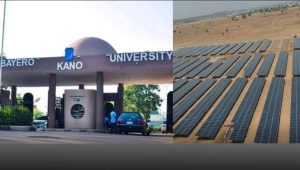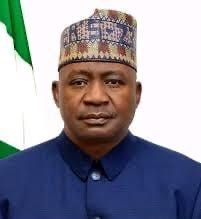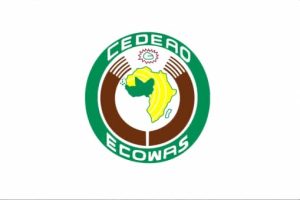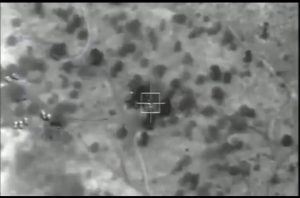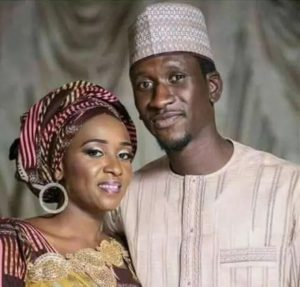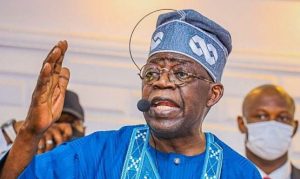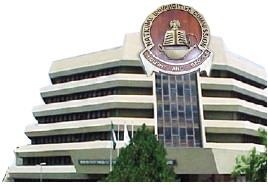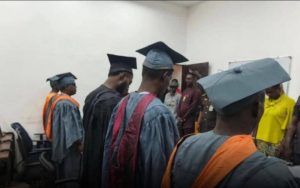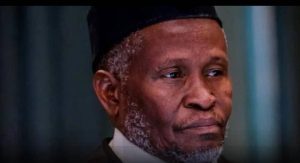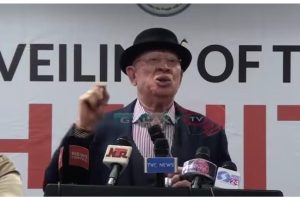As Nigeria gets closer, day after day, to the end of President Muhammadu Buhari’s tenure, a lot of things are happening. There are rumours, as well as agitations, for the division of the country. While those who are in support of this agitations may have their reasons, it is important to know that, to divide a country according to ethnic or ideological lines, you need to have all the basic elements that forms the bedrock of a peaceful coexistence, like conscientize the people and reorientate them to make them see the need for self-determination.
Whether Nigeria sperates or not, there is a system of governance that is universally acceptable, democracy, which is what this conversation is all about.
Democracy is said to be a system of governance that elects a representative to pilot the affairs of the majority. Yes, this is the case. But as it stands, the modern day democracy is when people elect who will bear the blame. So, the question is, what is an ideal democracy? What are its looks? And why do we need to know what an ideal democracy is all about? The answer is simple. Election is by the corner, and we really need to know what it entails.

At a minimum, an ideal democracy would have the following features:
Effective participation. Before a policy is adopted or rejected, members of the dēmos have the opportunity to make their views about the policy known to other members.
Equality in voting. Members of the dēmos have the opportunity to vote for or against the policy, and all votes are counted as equal.
Informed electorate. Members of the dēmos have the opportunity, within a reasonable amount of time, to learn about the policy and about possible alternative policies and their likely consequences.
Citizen control of the agenda. The dēmos, and only the dēmos, decide what matters are placed on the decision-making agenda and how they are placed there. Thus, the democratic process is “open” in the sense that the dēmos can change the policies of the association at any time.
Inclusion. Each and every member of the dēmos is entitled to participate in the association in the ways just described.
Fundamental rights. Each of the necessary features of ideal democracy prescribes a right that is itself a necessary feature of ideal democracy: thus every member of the dēmos has a right to communicate with others, a right to have his vote counted equally with the votes of others, a right to gather information, a right to participate on an equal footing with other members, and a right, with other members, to exercise control of the agenda. Democracy, therefore, consists of more than just political processes; it is also necessarily a system of fundamental rights.
Ideal and representative democracy
In modern representative democracies, the features of ideal democracy, to the extent that they exist, are realized through a variety of political institutions. These institutions, which are broadly similar in different countries despite significant differences in constitutional structure, were entirely new in human history at the time of their first appearance in Europe and the United States in the 18th century. Among the most important of them is naturally the institution of representation itself, through which all major government decisions and policies are made by popularly elected officials, who are accountable to the electorate for their actions. Other important institutions include:
Free, fair, and frequent elections. Citizens may participate in such elections both as voters and as candidates (though age and residence restrictions may be imposed).
Freedom of expression. Citizens may express themselves publicly on a broad range of politically relevant subjects without fear of punishment (see freedom of speech).
Independent sources of information. There exist sources of political information that are not under the control of the government or any single group and whose right to publish or otherwise disseminate information is protected by law; moreover, all citizens are entitled to seek out and use such sources of information.
Freedom of association. Citizens have the right to form and to participate in independent political organizations, including parties and interest groups.
Institutions like these developed in Europe and the United States in various political and historical circumstances, and the impulses that fostered them were not always themselves democratic. Yet, as they developed, it became increasingly apparent that they were necessary for achieving a satisfactory level of democracy in any political association as large as a nation-state.
The relationship between these institutions and the features of ideal democracy that are realized through them can be summarized as follows. In an association as large as a nation-state, representation is necessary for effective participation and for citizen control of the agenda; free, fair, and frequent elections are necessary for effective participation and for equality in voting; and freedom of expression, independent sources of information, and freedom of association are each necessary for effective participation, an informed electorate, and citizen control of the agenda.
Actual democracies
Since Aristotle’s time, political philosophers generally have insisted that no actual political system is likely to attain, to the fullest extent possible, all the features of its corresponding ideal. Thus, whereas the institutions of many actual systems are sufficient to attain a relatively high level of democracy, they are almost certainly not sufficient to achieve anything like perfect or ideal democracy. Nevertheless, such institutions may produce a satisfactory approximation of the ideal—as presumably they did in Athens in the 5th century BCE, when the term democracy was coined, and in the United States in the early 19th century, when Tocqueville, like most others in America and elsewhere, unhesitatingly called the country a democracy.
For associations that are small in population and area, the political institutions of direct democracy seem best to approximate the ideal of “government by the people.” In such a democracy all matters of importance to the association as a whole can be decided on by the citizens. Citizens have the opportunity to discuss the policies that come before them and to gather information directly from those they consider well informed, as well as from other sources. They can meet at a convenient place—the Pnyx in Athens, the Forum in Rome, the Palazzo Ducale in Venice, or the town hall in a New England village—to discuss the policy further and to offer amendments or revisions. Finally, their decision is rendered in a vote, all votes being counted equal, with the votes of a majority prevailing.
It is thus easy to see why direct democracies are sometimes thought to approach ideal democracy much more closely than representative systems ever could, and why the most ardent advocates of direct democracy have sometimes insisted, as Rousseau did in The Social Contract, that the term representative democracy is self-contradictory. Yet, views like these have failed to win many converts.
So, as people interested in building a wholesome society that is safe for all to live in, it is very vital for one to know what an ideal democracy is all about, so that we can practice it, and look up to the future where we all can be free.







